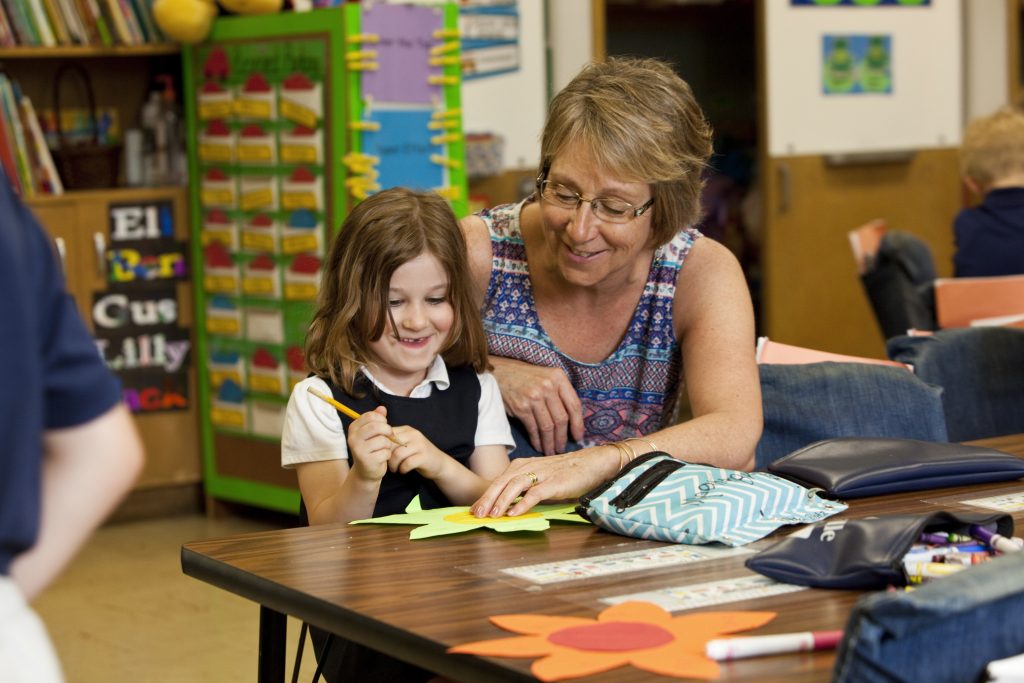
Preparing for Kindergarten
What better time is there than kindergarten to begin developing a lifelong love of learning? How can you help make that happen? Starting kids out with their best foot forward on the path to a rewarding school experience is a great place to start!
Today’s kindergarteners come from many different backgrounds – various types of daycare settings; in-home care with parents or grandparents; pre-schooled and non-pre-schooled. Some are exposed to a lot of media; some are not. However, in many cases, parents find themselves asking the question, “what can we do to make sure our child is ready for kindergarten?”
Here are a few tips from St. Anthony kindergarten teacher Laura Ripley:
The number one suggestion? READING!
- According to much research, reading with your child is the number one way to prepare her for kindergarten. This simple and enjoyable act sets the stage for learning to read; introduces her to vocabulary and print awareness; and provides invaluable one-on-one time for parent and child. Remember, it’s not only up to parents to read with children – grandparents and caregivers make great reading partners, too! For more tips to encourage a love for reading, click here.
- Soon, your young student will begin using proper writing tools. Building dexterity and fine motor skills will help her as she begins to write. Encourage your child to start practicing with pencils, crayons and markers at home. Work with her to establish a good writing grip. Practicing using child-safe scissors and manipulating play dough are some other great ways improve fine motor skills, too.
- If your child hasn’t already had much peer interaction and socialization, he soon will! Teach him about sharing. You might even arrange a play date to practice this habit. It is also important that your child is ready to follow teacher’s directions relatively quickly. With a full classroom of students, the teacher’s ability to keep things on schedule will depend on it.
- Fine tune the bedtime routine. This can be a challenge in the summertime but full-time kindergarten makes for a long day to which children often have a hard time adjusting. Start now by backing up bedtimes, so a circadian rhythm is in place by the time school starts.
- Similarly, you can prepare your child with a meal schedule much like she will experience in school. Mimic snack and lunch times, so her tummy is ready to make it through the day.
- And finally, one last important tip: Pay close attention to the number of minutes children are accessing technology. This is a critical developmental stage for your child’s life-long communication skills. Be a role model and take a break from screen time yourself – family meal times free of television or smart phone distractions provide an excellent opportunity for robust conversation. This is one way you can help your child develop his communication skills today!
St. Anthony Elementary School kindergarten teacher Laura Ripley has taught mainly kindergarten students her whole career. She has been at St. Anthony for the past eight years. In 2017, Laura received the ‘Elgin-DeMaio Award’ by the Clarke University Education Department for her dedication to the mentoring of pre-service teachers.
“I realize how truly blessed I am to be able to spend my days with these wise and wonderful little ones! While learning the alphabet, counting and neatly writing your name is important, I think we can learn a lot more from these children who tell me, ‘our most important job is to show love and care to one another.’” – Mrs. Ripley.
